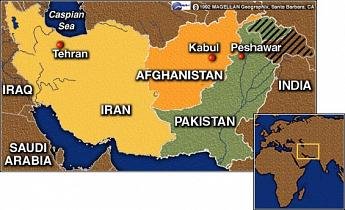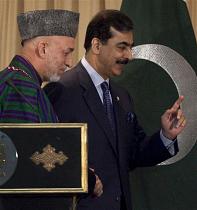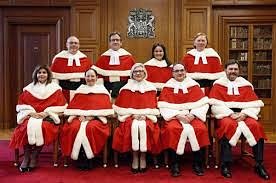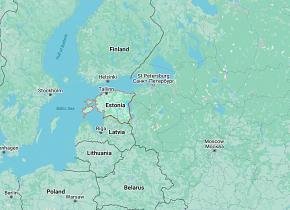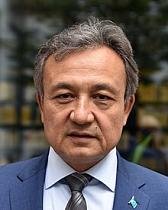Karzai's challenge: Emerging Pakistan-Afghanistan Ties
The entry of Pakistan into the notorious UNSC as a member without veto that would have made Islamabad powerful enough to dictate terms to all global criminal rogues led by NATO terror syndicate has now forced both USA and Afghanistan to change its atrociously arrogant postures against Pakistan, although a visible policy shift is not discernible from these anti-Islamic scoundrel nations. The Obama regime now says Pentagon would not wage an open war with Pakistan, but would only continue the ongoing terror war inside Pakistan killing innocent Muslims as the birth right of US criminals. The CIA says the Pak-US dialogue process is going on with success. USA also asks its puppet regime in Kabul to accelerate Afghan-led reconciliation talks in which Pakistan should also play its role. Now US is realizing that launching new military operation in Pakistan doesn’t suit Pakistan’s situation and is also looking for other means for tackling the issue of “militancy†including the reconciliation process. Every thing remains at instructions level from Washington. In stead of admitting the Pentagon-India manipulating the surcharged atmosphere in both Pakistan and Afghanistan, USA continues to bluff that Pakistani Taliban has established havens in Afghanistan posing threats of attacks against Pakistan. Today, Afghanistan and Afghans are being seen as pro-US, pro-India and anti-Pakistan and anti-Islam. It is difficult to differentiate between US terrorism and private militancy. Afghanistan and Pakistan have served as graveyards for superpowers that are the fanciful myths that exalt the Pakistani identity as US servants and Afghan identity as heroic warriors. Both Washington and Kabul have, possibly to fool the world, repeatedly said Pakistan is providing sanctuary to terrorist groups launching attacks in Afghanistan. Not long ago, Gilani said Pakistani agencies and the CIA were working together towards this end and had hit high-value targets. He said he could not declare that Pakistan had become powerful enough to stand against America but relations between the two countries were based on mutual interest. Since the USA has not yet openly declared the true picture of Al-Qaeda, Taliban and Haqqani network ass being the CIA creations, it is deadly impossible to comply with US claims on threat perceptions. Recently Afghan Ambassador Muhammad Omar Daudzai said in an interview with Waqt TV that both Pakistan and Afghanistan were facing a common enemy. He rightly emphasized that both the countries would have to work together to tackle their common problems. He particularly stated that this common enemy was a master of stratagem trying to pit both the nation against each other. The enemy is obviously the US, which on the one hand has literally crushed the Afghan nation under its brutal occupation, something that has led to deaths of millions of innocent Muslims and on the other, its drone attacks and unilateral operations inside Pakistan have thrown us in the eye of the storm.. Upon election of Pakistan to the notorious UNSC, Afghan puppet President Hamid Karzai said that if the USA and Pakistan ever went to war, his country would back Islamabad — a statement that contrasts with his harsh criticism of his eastern neighbor during US minister Hillary Rodham Clinton's recent visit to Kabul. He now says "his country" is indebted to Pakistan for taking in millions of Afghan refugees over the years and stressed that Kabul would not allow any nation — be it the USA, India, Russia, China or anyone else — to dictate its policies. Karzai even labelled Pakistan as Afghanistan's "twin brother". This change of Karzai mind is intriguing. Such words in diplomatic talks mean that Afghanistan cannot turn enemy against the state of Pakistan to please others. Such a scenario is exceedingly unlikely, and Karzai's remarks appeared to be less a serious statement of policy than an overture to Pakistan, whose cooperation is sorely needed if Afghanistan is to have a chance at stability after years of conflict and civil war. Nonetheless, Karzai's comments contrasted sharply with his show of alliance with Washington during Clinton's visit last week, during which the American ramped up the pressure on Islamabad to crack down on militants using its territory for attacks into Afghanistan. Karzai also vented his grievances against the US, asking it to stop entering Afghan homes especially when men are away on fictitious pretexts. The Obama forces are conducting the Soviet era night raids to attack Muslims, in reality not only causing not only civilian casualties, but also outrage among the population that regards the sanctity of homes as a matter of honour. Afghan’s puppet present Hamid Karzai, who is accustomed to blowing hot and cold in his attitude towards Pakistan, is apparently passing through a kindlier phase. His remark, "Afghanistan will stand by Pakistan, if attacked by the US," astonished the global audience. He declared that even in the case of an attack by India, or for that matter, by any other quarter, Afghans would side with Pakistan. Karzai administration feels that the remnants of the former Taliban government are being supported by factions within Pakistan for the same above reasons. Karzai naturally says and speaks what the CIA asks him to. In 2006 Karzai warned that "Iran and Pakistan and others are not fooling anyone" when it come to interfering in his country. For the first time, Karzai acknowledged Pakistan’s generous treatment of the five million Afghan refugees, who had fled the country during the Soviet invasion and provided shelter and taken care of by Pakistan, he argues that has strengthened the spirit of brotherhood among the people of Afghanistan for their Pakistani counterparts. II Many Pakistanis and Afghans see in each other’s nation a common bond based on religion, history, culture, language and ethnic ties. Afghanistan–Pakistan relations are relatively new that began in August 1947 when Pakistan came into existence as an independent nation. Since 1947 the ties had not been very encouraging, but since then, in order to advance its illegal hidden agendas in the region, America, on the pretext of Sept-11 hoax has very systematically divided Pakistan and Afghanistan almost on a permanent basis. Both have the US puppet regimes and CIA make both fight each other while promoting US illegal interests in the region. Pakistan and Afghanistan are usually described as inseparable states due to their historical, religious, cultural, linguistic, and ethnic ties, as well as their multiple trade and economic ties. Both neighbouring states are Islamic republics and part of the South Asian Association for Regional Cooperation- SAARC. However, the relationship between the two countries has been affected by the Durand Line, the issues of Pashtunistan and Balochistan, the 1980s Soviet war, the rise of the Taliban, the 2001-present US terror war, and the growing influence of India in Afghanistan to control this increasingly destabilizing nation. The Durand Line border was established after the 1893 Durand Line Agreement between Mortimer Durand of colonial British India and Amir Abdul R Khan of Afghanistan for fixing the limit of their respective spheres of influence. Pakistan inherited this agreement after its partition from India in 1947 but there has never been a formal agreement or ratification between Islamabad and Kabul. The Afghan government still refuses to recognize the poorly-marked Durand Line as the international border between the two states. Southern and eastern Afghanistan is predominately a Pashto-speaking region, like the adjacent Khyber-Pakhtunkhwa, federally administered Tribal Areas, and northern Balochistan in Pakistan. This entire area is inhabited by the indigenous Pashtuns who belong to different Pashtun tribes, now converted by the western terrocracies into terrorist zones. The Pashtuns have lived in this region for thousands of years, since at least the 1st millennium BC. That the Afghans have always been supported by Pakistan is more than evident in the case of housing thousands of refugees during the Soviet invasion of Afghanistan. The lack of employment opportunities had also compelled many to seek their livelihood across the border. Being linked by an approximately 2600km long boundary with the landlocked Afghanistan, Pakistan has also served as its major trading partner with at least 80% of Afghanistan’s trade depending upon its neighbouring Pakistan. In July 2010, a Memorandum of understanding was reached between Afghanistan and Pakistan for the Afghan-Pak Transit Trade Agreement (APTTA), which was observed by US Secretary madam Hillary Clinton. The two states also signed a MoU for the construction of rail tracks in Afghanistan to connect with Pakistan Railways (PR), which has been in the making since at least 2005. In October 2010, the long-awaited Afghan-Pak Transit Trade Agreement (APTTA) between the two states was finally inked. It would allow each nation's shipping trucks into the others; Afghan trucks will be allowed to drive through Pakistan to the Wagah border with India, including to the port cities of Karachi and Gwadar. The APTTA agreement has taken effect after several Afghan trucks delivered fruits from Afghanistan to the Wagah border with India in June 2011. With the completion of the APTTA, the USA and other NATO terror syndicate states are planning to revive the Silk Road. This is ostensibly to help the local economies of Afghanistan and Pakistan, by connecting South Asia with Central Asia and the Middle East, but in reality to promote US hidden energy route agenda in the region with Indian support. III The USA commits all crimes in Pakistan and Afghanistan and places blame on its favourite puppet Pakistan. The US that controls both these countries by all means shamelessly blames Pakistan's government, mainly Pakistani Army and its ISI agency, for many of the attacks inside Afghanistan and thinks by doing so it can escape punishment. Pakistan has always been the one silent force behind the Afghan strength to fight the enemies of Afghans, but their activities have been limited by US interferences. Islamabad said it time and again that that no terrorist group is operating from the Pakistani soil for the nefarious purpose of destabilizing Afghanistan. Following the Soviet invasion of Afghanistan in 1979, the USA skillfully used Pakistani soil and government against Soviet occupation by supporting the Mujahideen and assisting Afghan refugees. Pakistan absorbed an estimated 3 million refugees and provided shelters to them at various refugee camps, mainly around Peshawar in Khyber Pakhtunkhwa. After the Soviet withdrawal in February 1989, Pakistan, with cooperation from the UN High Commissioner for Refugees (UNHCR), continued to host the refugees. The overthrow of the Taliban regime in November 2001 has seen somewhat strained relations between Afghanistan and Pakistan. USA wants both of them take dictates from Washington and do not decide maters on their own. Pakistan, on the other side, issued a warning to Afghanistan in 2008 that it would not "tolerate any violations of its borders". Pakistani Prime Minister, Yusuf Raza Gilani, explained that the Durand Line border was too long to police. Relations have continued to be strained, as several top Afghan officials stated that they are weary of Pakistan's negative influence in the country by using its spy network, the Inter-Services Intelligence (ISI). Relations became even more strained as the top rogue USA fuels an Afghan invasion of tribal regions, killing innocent people there. In the face of tension between the US and Pakistan, the strategic partnership agreement Karzai signed with India not long ago, and his periodic outburst against Islamabad, most recently accusing it of masterminding and even carrying out the murder of former President B. Rabbani, his statement is, indeed, a significant about-turn. The strategic pact that commits India to "training, equipping and capacity building" of the Afghan National Security Services will certainly raise eyebrows, especially in Pakistan. Not surprisingly, Islamabad was quick to remind the Karzai government that it should behave responsibly. In Afghanistan's first strategic pact with any country, Kabul and New Delhi signed a landmark strategic partnership agreement during the visit. As part of the new pact, bilateral dialogue has been institutionalized to focus on enhancing cooperation in security issues. The two nations agreed to enhance India-Afghan cooperation in developing hydrocarbons and mineral resources political cooperation and institutionalize regular bilateral political and foreign office consultations. The West not wanting to offend so-called Indian sensitivities, further fueled the tension by encouraging India to be a player in Afghan reconstruction efforts but actively discouraged India from taking on a more forceful security role. Indian plan to train Afghan forces obviously against Pakistan cannot be objected by Pakistan. President Karzai as a puppet had unfortunately been previously blindly toeing the American line and indulging in brazen saber-rattling against Islamabad to woo the Indians. Not only that. His government has given a free hand to the Indians to use Afghan soil to create trouble in Pakistan, mainly through its consulates set up along the Pakistani border. However, whether Karzai has really changed or not remains to be seen in near future! Some Observations The global dictator USA wants to fully control the South Asia and old Silk Route for oil security. Pentagon began an illegal war on Islamic Afghanistan on factious Sept-11 hoax to pursue these goals. America, on the pretext of Sept-11 hoax has divided Pakistan and Afghanistan almost on a permanent basis. Pakistan has been reluctant to move more forcefully against the Haqqani, arguing such an act could spark a broader tribal war in the region with which it is militarily ill-equipped militarily to handle. Pakistan has said the government cannot control all elements of its intelligence agency, the ISI, which, as terror events unfold, the USA also controls. In the aftermath of fall of Afghanistan, US-NATO criminals attacked Islamic nations one by one- Iraq, Pakistan, Libya. In choosing to use state terrorism as an instrument of policy provoking violent extremism, Washington has systematically made a mockery of UN and ICC and ICJ. The notorious CIA keeps inventing the so-called terrorist gangs like Al-Qaeda, Taliban and latest the Haqqani network, linking all of them to the Pakistan government, now focusing on the Haqqani Network. As the only unilateral power on earth, USA may believe that by using all sorts of proxies, they are hedging their bets or redressing what they feel is an imbalance in regional power. America jeopardizes not only the prospect of Afghan-Pak strategic partnership but Pakistan's opportunity to be a respected nation with legitimate regional influence. Core media in Pakistan and Afghanistan are forced by CIA to focus on “Islamic terrorists†and not on US terror operations in either of them and obtain US liquor bottles and hassle free visas to USA as gifts. These “experts†suggest that Afghanistan is most likely to sink into civil war if US forces were to withdraw and indirectly promote foreign occupations. It is crude to note that many columnists seeking favours form USA and Europe even express strange views that it is always better to be US colonies than Russian. The Pakistan media want to root out “terrorist safe havens†from both sides of the Afghanistan-Pakistan border but do not want the NATO terror syndicate to wind down. Is peace possible with the Obama drones attacking Pakistanis at will? . There are obviously some elements that do not want improvement of Pak-Afghan relations. Indian policy towards its neighbours, especially Jammu Kashmir and Pakistan has not only brought instability in the region but has also, by US support, pushed the very existence of Pakistan into question. Indian strategists view Afghanistan as providing "strategic depth" in the event of a war with neighbouring India. On the contrary, Pakistan wants to temporary locate supplies in Afghanistan and prepare for a counter-offensive, in the event that the Indian Army crosses into Pakistan. India believes that Karzai was just assuaging Pakistani anxieties when he suggested that "Pakistan is a twin brother" while "India is a great friend. Karzai's interview, they say, is in a way trying to placate Pakistan's military establishment. This is nothing short of a charm offensive where the Afghan president is trying to persuade Pakistan to soften its position vis-à -vis strategic depth in Afghanistan. The US has been reluctant to take on India on Kashmir issue that escalates tension in the region till such time as their interests did not come under direct attack from New Delhi. As the western forces prepare for a pull-out, New Delhi is right to strengthen its might in Afghanistan. Strengthening the security dimension of India-Afghanistan ties is extremely important for India as it is in New Delhi's interest to arm Kabul The eventual drawdown of the US forces from Afghanistan plus Pakistan and their visible aftermath will be shared by both. In order to effect Afghan reconciliation, it is necessary to sideline New Delhi, which is under the false assumption that it would substitute the US once it leaves. It is necessary for a combined strategy of political and military means will bring back peace to war-ravaged Afghanistan. The solution to the Afghan conundrum lies in close cooperation amongst the brotherly Muslim countries of Iran, Pakistan and Turkey. They have the motivation and ability to attend to matters like reconstruction work, poverty, and creating political stability. The US that has only added to the problems of the Afghans cannot be trusted with the task. Many right thinking Pakistanis are wondering as to how long the Afghan President will continue to hold such kindly sentiments for Pakistan because Karzai follows the American line about the location of “terrorist sanctuaries†in Pakistan and his rhetoric could also be a usual CIA gimmick to keep Pakistan, now a member of notorious UNSC in good humours. It is good that the Afghans at long last are finally realizing that it is Pakistan that is their sincere friend. Pakistan will seize the opportunity of his commitment to defend the territorial integrity of our country and build further brotherly relations on the basis of this overture. Will Karzai realize that stabilizing Afghanistan without the presence of US and other foreign troops is the only long-term solution that can pave the way for reconciliation within estranged sections of Afghan society? About the writer: Dr. Abdul Ruff, Specialist on State Terrorism; Educationalist; Chancellor-Founder of Centor for International Affairs(CIA); Independent Analyst; Chronicler of Foreign occupations & Freedom movements(Palestine, Kashmir, Iraq, Afghanistan, Pakistan, Xinjiang, Chechnya, etc); Anti-Muslimism and anti-Islamism are more dangerous than "terrorism" Anti-Islamic forces & terrorists are using criminal elements for terrorizing the world and they in disguise are harming genuine interests of ordinary Muslims. Global media today, even in Muslim nations, are controlled by CIA & other anti-Islamic agencies. Former university Teacher. Website: http://abdulruff.wordpress.com.
Comments
There are 0 comments on this post




